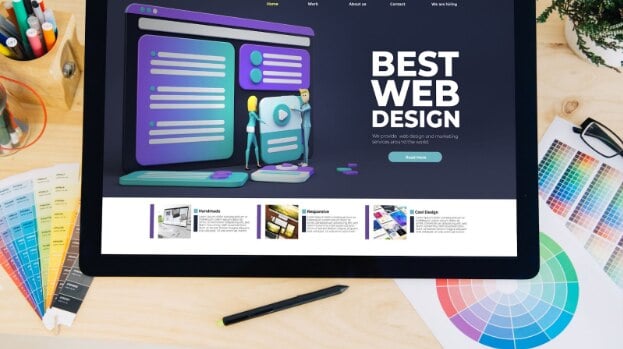As I sit here in my office, the setting sun paints the room in hues of amber, and my mind wanders to a conversation that I recall as vividly as if it occurred yesterday. A high-powered client from a prestigious property management company had called, his voice echoing the exasperation common among many who have to navigate the labyrinth of technical terms related to web design and development. “I do not understand the first thing about these jargon-filled proposals,” he confessed. This moment encapsulates the paradox many businesses face today: the need to embrace digital transformation versus the daunting lexicon that accompanies it.
A Troublesome Barrier to Transformation
Technical jargon, in many instances, has become a formidable hurdle for midsize businesses eager to transition into the digital landscape. Despite the undeniable benefits that a robust online presence offers, the bewildering array of technical terms can often leave clients feeling like they are treading water in a sea of confusion. As the CEO of Dependopolis Consulting Limited, my team and I have witnessed this paradox firsthand. Inspired by the simplicity in Chetan Bhagat’s narrative style, we have set out to bridge this communication gap, making web design and development an accessible realm for everyone.
Demystifying the Complex
Our approach, akin to Bhagat’s penchant for portraying complex human emotions through relatable stories, is to make the complex simple. The time came for us to put this approach into practice when we partnered with the property management company. Our client, while being an expert in real estate, was unfamiliar with the intricacies of web design. I distinctly remember the relief in his voice when we assured him that we would make the process transparent and jargon-free.
Breaking Down the Tower of Babel
Our modus operandi revolved around the principle of simplification. Instead of bombarding our client with industry-specific terms like UX/UI, backend, frontend, or wireframes, we made it a point to communicate in plain English, making these terms more relatable. In essence, we educated the client about the usability of their website and focused less on its features.
A website, we explained, is not just about its aesthetic appeal or the number of features it packs. The central concern should be its accessibility and how user-friendly it is for its target audience. This perspective marked a significant paradigm shift for our client, further emphasizing the importance of open communication and active feedback.
Priority on Accessibility
Taking a step beyond simplifying jargon, we hold accessibility as our paramount concern. A website’s value is significantly diminished if it is not accessible to its intended users. Hence, our focus has always been to ensure a website is not only accessible to the client but, crucially, user-friendly for its end-users.
Challenging the Status Quo
In conclusion, our journey with the property management company was not just about creating a user-friendly website but also about challenging the prevalent industry norm. The change was not effortless, and there were a few hiccups along the way, but the end result was a more knowledgeable client and a successful digital transformation.
As a personal reflection, it is both surprising and disheartening to know that around 70% of digital transformation efforts do not see the light of day, primarily due to the lack of familiarity with digital terminologies. This fact drives home the importance of what we do at Dependopolis, proving that simplifying jargon is not a mere service add-on but a necessity for successful digital transformation.
I would like to express my heartfelt gratitude to all our clients and team members for being a part of this exciting journey of transforming digital complexities into simplicity. Remember, at Dependopolis, we are making technical jargon a thing of the past, one word at a time. After all, as I often say in the lighter vein of humor, “If we’re not having fun, we’re doing it wrong!”







